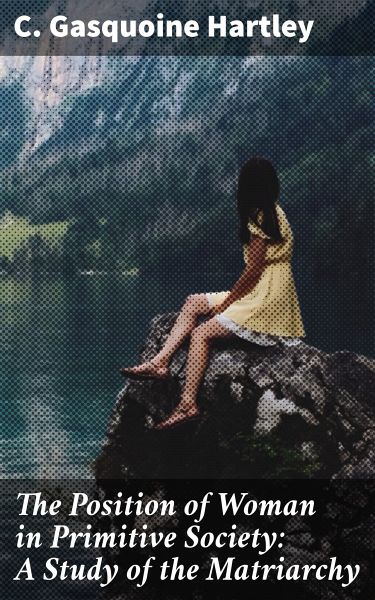
The Position of Woman in Primitive Society: A Study of the Matriarchy (eBook, ePUB)
Enriched edition. Unveiling the Ancient Power: Women's Authority in Matriarchal Societies
Kommentar: Whitfield, Cassidy / Redaktion: Good Press

PAYBACK Punkte
0 °P sammeln!
In "The Position of Woman in Primitive Society: A Study of the Matriarchy," C. Gasquoine Hartley presents a pioneering exploration of gender roles within early human communities, emphasizing the crucial position women held in matriarchal societies. Hartley combines anthropological insights with sociological theory, weaving together historical evidence and cultural analysis to unveil how women's roles were often central to societal structures. This comprehensive study situates itself amidst early 20th-century feminist discourse and social science, offering a fresh perspective that challenges pa...
In "The Position of Woman in Primitive Society: A Study of the Matriarchy," C. Gasquoine Hartley presents a pioneering exploration of gender roles within early human communities, emphasizing the crucial position women held in matriarchal societies. Hartley combines anthropological insights with sociological theory, weaving together historical evidence and cultural analysis to unveil how women's roles were often central to societal structures. This comprehensive study situates itself amidst early 20th-century feminist discourse and social science, offering a fresh perspective that challenges patriarchal narratives dominant in Western thought. C. Gasquoine Hartley, a prominent early feminist and an advocate of women's rights, was profoundly influenced by her background in sociology and her commitment to social justice. Her scholarly work reflects a deep engagement with contemporary debates on gender and power dynamics, drawing from her research into various cultures and historical contexts. Hartley's intellectual environment, shaped by both the suffrage movement and advancements in anthropology, undoubtedly informed her examination of matriarchy as a viable societal model. Hartley's work is essential reading for scholars, students, and anyone interested in gender studies, anthropology, or history. "The Position of Woman in Primitive Society" not only enriches our understanding of early civilizations but also invites readers to reflect critically on the evolution of gender roles and their implications for modern society. In this enriched edition, we have carefully created added value for your reading experience: - A succinct Introduction situates the work's timeless appeal and themes. - The Synopsis outlines the central plot, highlighting key developments without spoiling critical twists. - A detailed Historical Context immerses you in the era's events and influences that shaped the writing. - An Author Biography reveals milestones in the author's life, illuminating the personal insights behind the text. - A thorough Analysis dissects symbols, motifs, and character arcs to unearth underlying meanings. - Reflection questions prompt you to engage personally with the work's messages, connecting them to modern life. - Hand-picked Memorable Quotes shine a spotlight on moments of literary brilliance. - Interactive footnotes clarify unusual references, historical allusions, and archaic phrases for an effortless, more informed read.
Dieser Download kann aus rechtlichen Gründen nur mit Rechnungsadresse in A, B, BG, CY, CZ, D, DK, EW, E, FIN, F, GR, H, IRL, I, LT, L, LR, M, NL, PL, P, R, S, SLO, SK ausgeliefert werden.













